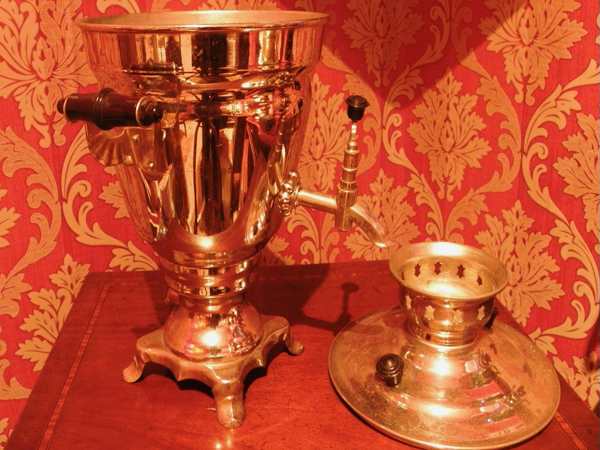Congratulations on your exciting eBay win! A samovar for just £6.85 (plus postage) is a fantastic find. Samovars, these captivating metal urns, aren’t just a decorative piece; they’re steeped in history and tradition, offering a unique way to enjoy tea. Let’s delve into the fascinating world of samovars and explore how you can use yours to create a delightful tea ritual, even if tea isn’t your usual cup of…well, tea!
A Self-Boiling Marvel: The History of the Samovar
The word “samovar” likely originates from the Russian “samo” (self) and “varit” (to boil or bake), perfectly capturing its essence – a self-boiling marvel. Some argue it could stem from the Tatar word “sanabar” meaning “tea urn,” but as you rightly pointed out, tea isn’t brewed directly within the samovar itself.
The Art of Samovar Tea:
While the samovar boils water, the tea leaves are traditionally steeped in a separate teapot, often placed atop the samovar to keep it warm. The resulting strong tea concentrate is then diluted with hot water drawn from the samovar’s spigot, typically in a 10:1 ratio. This misconception about brewing tea directly in the samovar might explain the possibility of a Tatar origin for the word.
Beyond the Samovar: Exploring Tea Traditions
While you may not be a tea drinker yourself, the samovar opens doors to exploring other delightful tea traditions. You mentioned enjoying strong, sweet North African mint tea. This vibrant tea, often poured into small glasses held within metal holders called “zarfs,” is a refreshing treat on a hot day. Zarf (also known as fingan or finjan) literally means “cup” in Arabic, and these handy holders protect fingers from the hot glass.
Embracing New Experiences: Plugging In Your Samovar
We understand your hesitation regarding the electrical system, especially after your “memorable” experiences with a Russian car! However, modern electric samovars are generally quite safe. If you’re comfortable with basic electrical appliances, consider giving your samovar a try. Start by filling it with water below the maximum fill line, following the manufacturer’s instructions. Once plugged in, the water should heat quickly, and soon you’ll have a steady supply of hot water for tea – or for other uses like instant coffee or hot chocolate.
A Samovar for Every Occasion:
Even without being a tea aficionado, a samovar can be a delightful addition to your home. Here are some ideas:
- Host a Tea Party: Invite friends for a unique tea-tasting experience. Explore different tea varieties, brewing them in your separate teapot and offering a selection of sweeteners and treats.
- Hot Beverage Station: Keep the samovar handy for instant hot water whenever you need it – for a quick cup of coffee, herbal tea, or hot soup.
- Conversation Starter: Your samovar is sure to spark curiosity among guests. Share your newfound knowledge about its history and tradition, creating a conversation piece with a touch of cultural flair.
Sláinte Mhaith and Beyond!
While you celebrate Paddy’s Day with a well-deserved stout (Sláinte mhaith!), your samovar awaits new adventures. Embrace the spirit of discovery, delve into the world of tea traditions, or simply enjoy the convenience of a hot water source. Your samovar is a versatile treasure waiting to be explored.

